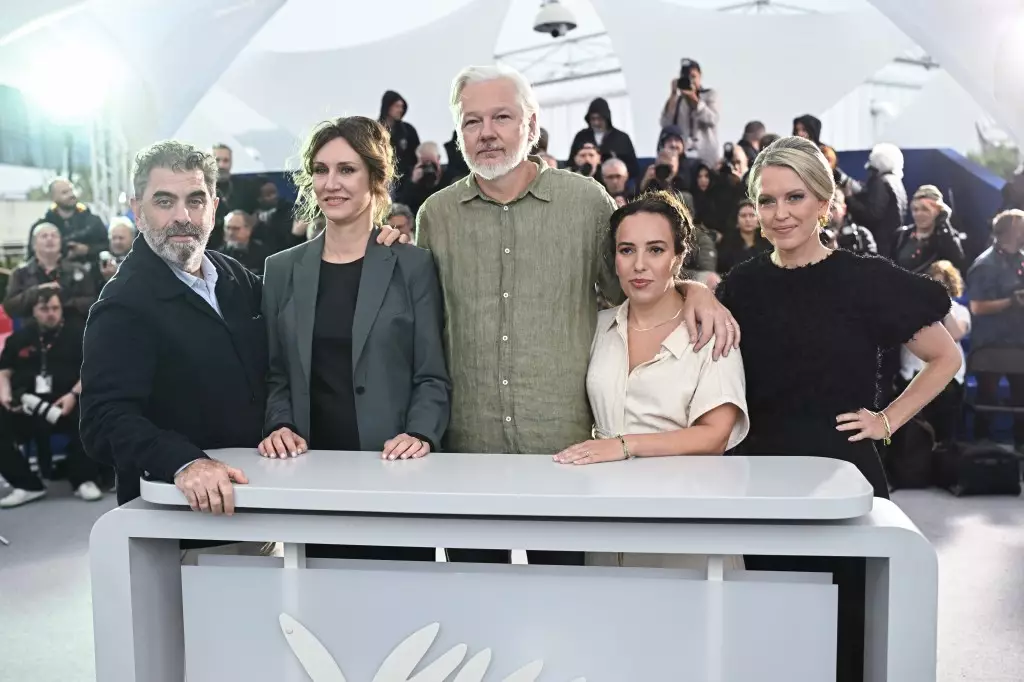In an age where information is the currency of democracy, the stifling of whistleblower platforms like WikiLeaks sends a chilling message to those who dare to question authority. For over five years, the platform has remained uncharacteristically silent, a lapse that many argue marks a painful retreat from the ideals of transparency and accountability. Filmmaker Eugene Jarecki’s documentary, *The Six Billion Dollar Man*, shines a spotlight on the government’s relentless pursuit of Julian Assange, the journalist behind WikiLeaks. Jarecki’s work serves not merely as a recounting of events but as a stark indictment of a systematic attempt to undermine democratic principles through the suppression of dissenting voices.
State Power Versus Individual Liberty
At the heart of this narrative lies a disturbing juxtaposition: state power taking precedence over individual liberty. Jarecki presents a shocking figure—that the U.S. government has allegedly spent around $6 billion in efforts to dismantle Assange and his organization. This astronomical amount prompts some uncomfortable questions about priorities. Shouldn’t resources allocated for national security instead focus on pressing societal needs such as healthcare, education, and infrastructure? Instead, the funds meant to ensure public safety appear to have found their way into a clandestine war against a journalist challenging government opacity.
Furthermore, it’s interesting to note how the U.S.’s foreign policy often adopts a hypocritical stance. Jarecki makes a crucial observation: using financial leverage to politically maneuver other nations resembles tactics affiliated with imperialism. When Ecuador was offered a monetary aid package, it was not just about Assange anymore but about the moral compass of a nation that proclaims to uphold democracy while wielding its economic power to coerce sovereign nations.
An Erosion of Democracy
The implications of stifling whistleblowing efforts reach far beyond Assange’s case. When truth tellers are targeted, the entire infrastructure of democratic accountability collapses. In theory, a society thrives on diverse voices and critiques of power. Yet, when those who dare to unearth the truth in the name of the public good face consequences that come with multimillion-dollar witch hunts, the public space shrinks. The air thickens with intimidation, prompting potential whistleblowers to reconsider their choices, and in turn, the temperature of the discourse cools ominously.
Jarecki’s film poses an ethical dilemma for viewers to grapple with: Is the pursuit of transparency worth the cost of deploying federal power to obliterate individual voices? Such questions resonate deeply, especially in a world where misinformation runs rampant and the truths we depend on for informed citizenship become increasingly rare.
The Personal Toll on Truth Being Unveiled
Another layer unveiled in *The Six Billion Dollar Man* is the profound personal toll on individuals living under the constant specter of governmental reprisal. Assange’s years in the Ecuadorian Embassy, followed by his incarceration, paint a harrowing picture of the sacrifices demanded by those who dare to challenge state narratives. This agony is not confined to Assange alone; it impacts his family, friends, and undoubtedly the many other journalists who now consider their roles in the greater democratic tapestry.
The documentary adopts a potent narrative style, not only recounting facts but weaving them into a compelling story about courage in the face of overbearing authority. As Assange stands on the international stage once again, Jarecki offers a visceral reminder of what’s at stake—not just for Assange but for concepts of free speech and journalistic integrity that are the backbone of a functioning democracy.
A Call to Arms for Citizens
As Jarecki elegantly illustrates through his work, the struggle is not merely one of a single individual; it speaks volumes about the collective responsibility to challenge the status quo. In a time when voices of dissent are increasingly marginalized, the audience is urged not just to reflect but to act. The rise of authoritarianism—often masked beneath the veil of patriotism—should awaken the inner whistleblower in every citizen.
Jarecki’s documentary, which deserves broader distribution than it currently has, serves as a rallying cry for justice and accountability. The time for sidelining these essential conversations is over; it is incumbent upon society to advocate for the truths that underpin our shared humanity—an act both liberating and necessary for democracy to thrive.

